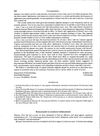142 citations,
March 2019 in “Molecules/Molecules online/Molecules annual” Cannabinoids may help treat various skin conditions.
114 citations,
October 2017 in “American journal of clinical dermatology” Adequate vitamin D is crucial for skin health and should be considered in dermatology.
54 citations,
June 2020 in “Pharmaceutics” New nanocarriers improve drug delivery for disease treatment.
29 citations,
June 2020 in “International Journal of Molecular Sciences” Notch signaling disruptions can cause various skin diseases.
 12 citations,
August 2022 in “Biochemical Journal”
12 citations,
August 2022 in “Biochemical Journal” Different types of cell death affect skin health and inflammation, and understanding them could improve treatments for skin diseases.
 11 citations,
May 2021 in “Clinical Epidemiology”
11 citations,
May 2021 in “Clinical Epidemiology” Vitiligo is underreported in medical claims and is linked to certain skin types and autoimmune diseases.
9 citations,
June 2023 in “Cells” Certain natural and synthetic compounds may help treat inflammatory skin diseases by targeting a specific signaling pathway.
 3 citations,
December 2022 in “Cells”
3 citations,
December 2022 in “Cells” Cannabinoids like CBD and THC may help treat non-cancer skin diseases, but more research is needed.
1 citations,
November 2023 in “International journal of molecular sciences” Cannabinoids might help treat skin problems but more research is needed to be sure.
1 citations,
January 2019 in “Indian journal of paediatric dermatology” Kids with alopecia areata had lower vitamin D levels than healthy kids.
7 citations,
January 2019 in “Indian dermatology online journal” People with alopecia areata often have lower vitamin D levels, which may be linked to the condition's severity.
2 citations,
February 2024 in “International journal of molecular sciences” Gut health affects skin diseases, and probiotics might help.
3 citations,
May 2016 in “Dermatopathology” Lrig1 could be a marker for advanced sebaceous carcinoma.
2 citations,
May 2023 in “Frontiers in Pharmacology” Natural products may help treat skin inflammation from abnormal adrenal hormones.
1 citations,
May 2024 in “Pharmaceutics” Hemp is a promising ingredient for skin products due to its healing and soothing properties.
 1 citations,
March 2023 in “Phytochemistry Reviews”
1 citations,
March 2023 in “Phytochemistry Reviews” CBD may improve skin and hair health, but its effective use and safety need more research.
 1 citations,
December 2022 in “Archives of Dermatological Research”
1 citations,
December 2022 in “Archives of Dermatological Research” Acne treatment with isotretinoin increases the presence of p53, a protein, in skin and oil glands, which may help reduce acne severity.
 January 2025 in “Cellular & Molecular Biology Letters”
January 2025 in “Cellular & Molecular Biology Letters” Eicosanoids are crucial for skin health, and targeting their pathways may help treat skin conditions.
 March 2024 in “International journal of nanomedicine”
March 2024 in “International journal of nanomedicine” Polymeric nanohydrogels show potential for skin drug delivery but have concerns like toxicity and regulatory hurdles.
 41 citations,
November 1987 in “British Journal of Dermatology”
41 citations,
November 1987 in “British Journal of Dermatology” Ketoconazole cured about 70% of cutaneous leishmaniasis cases caused by Leishmania major.
 100 citations,
July 2018 in “Journal of The American Academy of Dermatology”
100 citations,
July 2018 in “Journal of The American Academy of Dermatology” People with alopecia areata often have other health issues like skin diseases, metabolic syndrome, stomach infections, lupus, anemia, thyroid problems, mental health issues, vitamin D deficiency, and hearing and eye problems.
 7 citations,
January 2003 in “Elsevier eBooks”
7 citations,
January 2003 in “Elsevier eBooks” Testosterone is crucial for development, growth, and various body functions in mammals.
 1 citations,
November 2023 in “Curēus”
1 citations,
November 2023 in “Curēus” Early diagnosis and treatment of nail and skin conditions can improve health and appearance.
 June 2020 in “Journal of Investigative Dermatology”
June 2020 in “Journal of Investigative Dermatology” More research with diverse participants is needed to determine the effectiveness of photobiomodulation devices for hair loss treatment.
 January 2018 in “Elsevier eBooks”
January 2018 in “Elsevier eBooks” Topical imiquimod is as effective as 5-fluorouracil for treating actinic keratosis, with about a 5% risk of it turning into squamous cell carcinoma.
 June 2016 in “CRC Press eBooks”
June 2016 in “CRC Press eBooks” Sleep problems and skin issues affect each other; poor sleep can worsen skin conditions, and some skin treatments can improve or harm sleep quality.
 May 2011 in “Value in Health”
May 2011 in “Value in Health” No current patient-reported outcome measure fully meets FDA requirements for alopecia treatments.
 114 citations,
February 2012 in “International Journal of Dermatology”
114 citations,
February 2012 in “International Journal of Dermatology” Smoking harms the skin, causing early aging and increasing cancer risk, but stopping smoking can improve skin health.
 63 citations,
May 2017 in “American Journal of Clinical Dermatology”
63 citations,
May 2017 in “American Journal of Clinical Dermatology” People with alopecia areata often have lower levels of vitamin D, zinc, and folate, but more research is needed to understand if supplements can help treat it.
 39 citations,
March 2003 in “The Veterinary clinics of North America. Small animal practice/Veterinary clinics of North America. Small animal practice”
39 citations,
March 2003 in “The Veterinary clinics of North America. Small animal practice/Veterinary clinics of North America. Small animal practice” Behavioral dermatology treats skin problems by considering both emotional and physical factors.

















